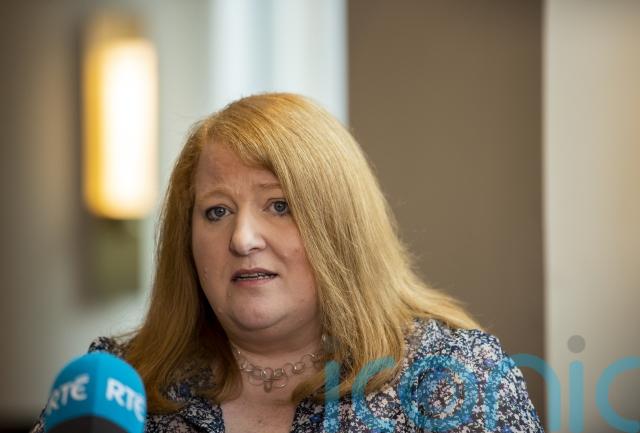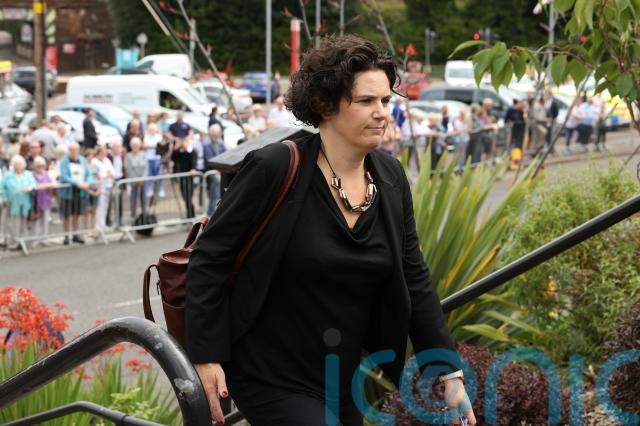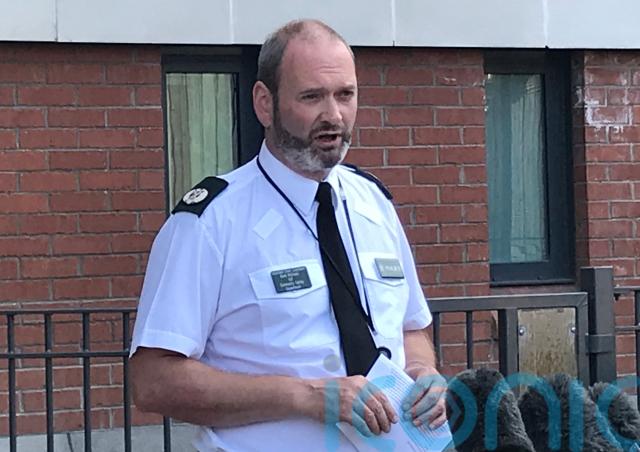
Stormont must act to ensure public money is not being paid out to active paramilitaries, the Justice Minister has said.
Naomi Long expressed concerns about people with links to paramilitary groups being involved on boards or in organisations that were in receipt of taxpayer funds.
Ms Long told the Northern Ireland Affairs Committee there was a need to review funding procedures and contracts to ensure that Stormont departments did not end up “giving cover or status to current paramilitaries”.
The minister was giving evidence to the committee’s inquiry into paramilitarism in Northern Ireland.

Committee member SDLP MP Claire Hanna had raised concerns about public funds being paid to people who were aligned with paramilitaries and who were “community workers by day and troublemakers by night”.
She raised specific concerns around the make-up of Policing and Community Safety Partnerships (PCSPs) and some other publicly funded bodies.
Ms Long replied: “We are very clear in terms of DoJ funding that current links to current paramilitarism would be contrary to the contracts we have signed with those organisations who deliver.
“And, where someone is deemed to be in breach of that, where there is evidence, I would argue where there is strong suspicion that that is the case, where the police are concerned that that is the case, we would want to be able to take robust action because this is not just about where people are breaking the law, it is where people breach trust, or place the reputation of a funder at risk by their behaviour.
“And it’s incredibly important that when that happens, we take robust action.”
The minister added: “It is a fear that I have had for some time, it’s a suspicion that I have had and a concern that I have had, it has been reinforced by some recent events, and therefore I think it is timely for us to review how we ensure that we robustly protect public funds and that we ensure that where we are funding people to do work, we are not giving cover or status to current paramilitaries who are exerting coercive control on communities or behaving in a way that is contrary to the rule of law.”

Ms Long said her department could not compel other departments to change how they awarded and monitored public funding allocations.
“We can certainly lead on it, however we can’t force anyone to do anything,” she said.
“You will appreciate the nature of the executive… it is not an easy job to get the executive agreed, but this is part and parcel of the tackling paramilitarism programme. That is an executive agreed programme.
“It is not just a DoJ issue, and what we are doing is leading on building that consensus.”
She added: “A number of executive colleagues are clearly open to looking at the contract issue. I think the thing is that you’ve got to put it in at the ground level, there is no point trying to hold people accountable if it isn’t part of their contract.
“So, it’s got to be there contractually. It’s got to be clear and understood from the outset when you’re dealing with organisations that these are the standards that we expect, that anything short of those standards will lead to something being removed, and then the onus is on them to live up to those commitments and then the onus is on us to monitor and ensure that they do.”
Police Service of Northern Ireland Assistant Chief Constable Mark McEwan was also asked about the issue as he gave evidence to the committee on Wednesday.

He said he was not aware of any current specific cases of the sort referred to by Ms Hanna.
But he added: “We are supportive of departments or other bodies who are trying to carry out due diligence in terms of the constitution of boards and who may be receiving public funds.
“Where we suspect or where we have an opportunity to deal with criminality we will deal with it without any fear or favour and we’ll then bring it to the attention of the appropriate authority in terms of that funding. So, where we find that, we will do that.”
Mr McEwan also told the committee that efforts by the police and other agencies to tackle paramilitarism in Northern Ireland were working.
“We are making progress, having an impact,” he said.
“This is the lowest year in the last 10 years in terms of security trends, this has been the lowest number of shootings and bombings.
“And I am talking about within communities and things like pipe bombs at the lower end as well.
“It’s the lowest per casualties of paramilitary style shootings and the lowest paramilitary style assaults.
“So, by those stark statistics, we are making an impact.”
Mr McEwan told the committee the police were aware of 68 organised crime groups operating in Northern Ireland. He said these groups were involved in crimes such as drug importation and people trafficking.
The senior officer said of the 68 groups, 32% had a direct link to paramilitary organisations in the region.
Subscribe or register today to discover more from DonegalLive.ie
Buy the e-paper of the Donegal Democrat, Donegal People's Press, Donegal Post and Inish Times here for instant access to Donegal's premier news titles.
Keep up with the latest news from Donegal with our daily newsletter featuring the most important stories of the day delivered to your inbox every evening at 5pm.